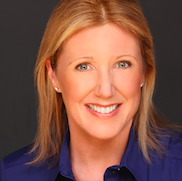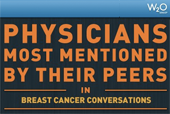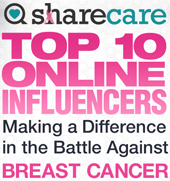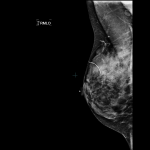The Breast Diaries
Stacey is also a guest blogger at KevinMD.com. Check out her latest post here!
Q&A: When and How Often Should I Visit?
October 11th, 2012At what age should I start having screening mammograms, and how frequently? Why does there seem to be controversy in the media surrounding this?
- For most women, age 40 should be when you start having yearly mammograms in order to minimize your likelihood of developing advanced breast cancer. Some doctors send their patients for a baseline mammogram at age 35, and I wouldn’t argue with that.
If you have a strong family history of breast cancer (mother or sister), start having your mammogram 10 years younger
Q&A: Is Digital Mammography More Accurate?
October 10th, 2012What is a digital mammogram? Is it more accurate?
- The traditional mammogram was a film-screen, or analog, mammogram. In 2000, the FDA approved the use of digital mammography units. An x-ray is still taken, but instead of the beam being directly translated onto a film, the beam is converted to digital data that is then processed to appear on a computer monitor. The digital image can be manipulated on the computer screen, with tools for magnification, contrast and windowing adjustments, sharpening, etc. Approximately
Q&A: Thyroid Shield?
October 9th, 2012Should my thyroid be shielded when I have a mammogram?
- This issue received media attention when Dr. Oz highlighted a study showing a significant increase in thyroid cancer in the U.S. since 1998, and he theorized that this is due to radiation exposure to the thyroid gland during annual mammography. It is highly unlikely that mammography can be blamed for this increased incidence, as it seen in both women AND men, and men do not receive screening mammograms. A recent paper estimated that the lifetime risk for thyroid cancer
Q&A: Are Mammograms Dangerous?
October 8th, 2012What is the radiation dose of a mammogram? Is it dangerous?
- For digital mammography, the average radiation dose from a standard 4-view mammogram of both breasts is 3.7mGy; for film-screen mammography (not digital), the average dose is 4.7mGy. Data suggests that if there is any risk for developing breast cancer because of screening mammography, it is extremely small. In the Swedish Two County Trial, over 100,000 women have had repeated mammograms since the 1970’s, and the screened group has no more cancers than the group
Questions and Answers to Honor Pink October 2012
October 5th, 2012Question: What …
Read MoreBreast Cancer Awareness Month 2012: Why Breast Density Matters
October 4th, 2012As a breast imaging radiologist at Montclair Breast Center with over 12 years of experience practicing in my field, I can tell you based on voluminous evidence in the scientific literature as well as from clinical experience that if you have dense breast tissue (determined from a mammogram, not from physical exam), the odds of finding a cancer on your mammogram are about equal to a coin toss.
Even with the best digital technology and the most experienced reader, a cancer will not be detected mammographically in up to half of women with dense breasts,…
Read MoreAMA Votes in Support of Screening Mammography Starting at 40
July 6th, 2012This week, after much discussion, inquiry and debate, The House of Delegates of the American Medical Association (AMA) voted at the AMA 2012 Annual Meeting to support insurance coverage for screening mammography. The AMA further stated its belief that beginning at age 40 years, all women should be eligible for screening mammography. The AMA now joins the American Cancer Society, the American College of Ob/Gyn, the American College of Surgeons, the American College of Radiology, and other esteemed guideline-making professional groups in disagreeing with …
Read MoreCathy Tatusko, Heroine of Breast Density Legislation in Virginia, Speaks Out
May 31st, 2012Cathy Tatusko, a breast cancer patient whose tumor was found at an advanced stage after years of “normal” mammograms, testified before the FDA last month in support of approval of a whole-breast automated ultrasound system. In her testimony, she tells her compelling and heart-wrenching story, and explains why she has been motivated to become a successful advocate for the cause of informing women about their breast density. She has graciously allowed me to post her testimony as a guest blog article.
By Cathryn M. Tatusko
FDA Testimony (April 11,…
Read MoreHow to Find a “Good” Breast Imaging Center
April 17th, 2012I’ve received several inquiries from women living in various regions of the country, asking how they should choose where to go for their mammogram, and if it really matters. I cannot emphasize this enough: It matters! Here are a few tips to help your search:
- The most basic requirement is whether a facility is accredited under the MQSA (Mammography Quality Standards Act). The accrediting body for most states is the ACR (American College of Radiology), which has a list of requirements and tests that facilities must comply with in order for the centers to achieve
A Minute Well Spent: Sign up for a (Free) Mammogram Reminder
April 3rd, 2012A woman in her 40’s feels an odd thickening in her breast one day while taking a shower. She calls her doctor, who immediately refers her to a radiology practice for a diagnostic mammogram and sonogram. The patient asks her doctor to check her chart and tell her when she had her last screening mammogram; she thinks it was maybe just over a year ago. Her life is extremely busy, and with four children ranging in ages from 5 to 17, she’s not always able to keep track of her own medical appointments. The doctor tells her that her last mammogram was actually 20 …
Read More









